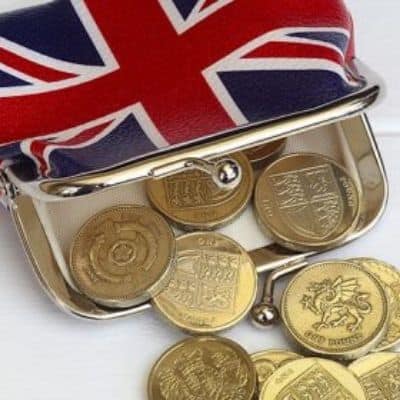How Much Money Can You Gift to a Child

This page was last updated on 1 November 2021.
How Much Money Can You Gift?
Making cash gifts to family and children can be an important element of estate planning.
This is because it is an important and quite simple way to save inheritance tax. By maximising your tax-free allowance and your annual exemption, you can improve the value of your estate which will be passed onto your children and family, rather than being paid to HMRC.
However, it is important to have the right information to prevent adverse tax consequences.
Topics that you will find covered on this page
You can listen an audio recording of this page if you prefer.
What is considered a gift?
A gift includes property, money, and any assets. A gift also includes any loss in value, like if your parents sell you a share worth £2000 for £1000.
Are gifts taxable?
You never have to pay income tax on a gift unless it earns you money. However, depending on the gift and when it was given, you may have to pay inheritance tax on the gift when the person who gave it to you dies.
Why do I have to pay tax on gifts?
HMRC charges tax on gifts so people cannot avoid inheritance tax by giving away all their money and assets without paying tax.
Here is a short video on gifts and how they relate to inheritance tax.
You can watch the original video here.
How much money can I give away without tax implications in the UK?
In essence, you do not have to pay tax on gifts if:
- The person who made the gift gave away less than their £3000 allowance in the tax year they made the gift
- The gift comes from their surplus income, so it did not change their standard of living
- The person who gave the gift did not die within seven years of making the gift
- The gift was for a wedding (within certain limits, as for children and grandchildren)
- The gift is worth than £250
How much money can you give as a gift?
You can give away any amount of money you want but if you give more than the £3000 limit each year you will have to start paying inheritance tax. This is your annual exemption, so if gifts that come within the threshold do not attract inheritance tax.
Gifting to family – How much can you gift tax free?
If gifting to family is something you want to do then each tax year you can make financial gifts of up to a value of £3000 between as many people as you want without having to pay tax. You can also make unlimited cash gifts of up to £250.

Do I need to pay tax on small gifts?
Gifts worth less than £250 are exempt from inheritance tax. This means you can share lots of small gifts between multiple people.
What are the rules on small gifts?
You cannot use the £250 exception if in addition you already received their full £ 3 000 annual exemption gift money. If you were given £3000 from your parents' estate first, you will have to pay tax on all the other gifts you get from them, even if they are worth under £250.
Also, you cannot, for example, make a gift of £300, and not pay tax on the first £250. The gift financial value has to actually be below £250 to be in this exemption.
Who pays the tax on a gift?
People you have made gifts to may have tax to pay but only if you gave away over £325,000 and you died within seven years of making the gift.
What is a personal allowance?
You are not liable to pay inheritance tax on the first £325,000 in your estate.
This means that you improve the amount your family can inherit if you give money over this limit as gifts during your lifetime.
What are the rules for wedding gifts?
Different inheritance tax rules apply to wedding gifts.
You can make tax-free wedding gifts of up to £1000, and up to £2500 for your grandchildren and £5000 for your children without paying tax.
You have to make the gift before the actual wedding and the wedding must go ahead, otherwise, the gift will be treated as a potentially exempt transfer, so it will only be tax-free if you are still alive in seven years time.
"Each tax year you can make financial gifts of up to a value of £3000 between as many people as you want without having to pay tax, you can also make unlimited cash gifts of up to £250."
Do I pay tax on Christmas presents, birthday presents etc.?
For this sort of gift to be exempt from inheritance tax, they cannot affect the person giving the gift's standard of living. You would prove this to HMRC by showing information that they had enough income or savings to afford it.
When will I have to explain a gift to HMRC?
HMRC probably would not notice small gift money, like for Christmas and birthdays.
But if you were paid regular deposits into your account, or you get a substantial gift, like to help buy a house, you may need to explain this to HMRC when your parent dies.

Do I pay tax on gifts I make to charities?
You will not be taxed when gifting money to:
- Charity
- An amateur sports club
- A museum or university
- Generally political parties
However, there are somewhat confusing rules about UK gift tax and therefore if you are gifting a large amount, it may be worth seeking legal advice.
Do I have to pay tax on gifts made to help with the living costs of my parents or my children?
There is a tax exemption allowing you to help with the living costs for:
- A child under the age of 18
- A child over 18 in full-time education
- Elderly parents
- A former spouse or civil partner
Can I make regular gifts?
If you make regular gifts from your taxed income, not from your savings, you may be able to be exempt from tax for:
- Paying maintenance to your spouse, civil partner or someone you were married to or in a civil partnership with
- Maintenance to help elderly parents
- Maintenance to a child under age 18 or in full-time education
- Regular personal gifting to a child or friends for birthdays, Christmas, anniversaries, etc.
- The premium on your life insurance policy
- Any monthly or regular payments, like an allowance to a child, taking into account the threshold rules.
What is the 7-year rule in inheritance tax?
The seven-year rule is that if you gift money or assets over seven years before you die, then this sum will be free from inheritance tax.
Many people will use this as a method of relief from inheritance tax on their estate by gifting money or property to their children and family during their lifetime.
What is a potentially exempt transfer?
A potentially exempt transfer is when you gift money during your lifetime, but you only pay tax on it as part of your estate if you die less within seven years of making the gift. You are only eligible for this exemption if you have given away less than £325,000 worth of cash and assets in the seven years before your death.

What happens if I give a gift less than 7 years before I die?
You may still pay less inheritance tax by gifting money to your family within seven years of your death, than leaving it to your family or loved ones in your will. There is a taper relief, therefore there is a sliding scale where the tax rate is higher the closer the gift was made to the person's death. In the three years before your death, the rate is the same as if the property was left in a will.
How much is taper relief?
If the gift was made less than seven years before your death, the tax rate band varies depending on the number of years between the gift and death. This is known as taper relief and is as follows.
- 6-7 years- 8%
- 5-6 years- 16%
- 4-5 years- 24%
- 3-4 years- 32%
- 3 or fewer years- 40%
How does the inheritance tax threshold apply to gifts made within your lifetime?
This depends on if the gift itself is above or below the inheritance tax allowance.
If the gift is above the inheritance tax threshold, i.e. £325,000, the person or your executor has to pay inheritance tax on the total gift value, regardless of the size of your estate.
If the gift is worth less than £325,000, then the value of the gift is added onto your estate, so you will have to tax will be payable on the value of your estate worth over the threshold.
What is the annual exemption?
You can give away an amount of up to £3000 per tax year without having to pay tax. These gifts are outside your estate, therefore you are avoiding being taxed. You can carry your exemption over to the next year, but only for up to one year.
Can I use last year's unused annual exemption this year?
You can carry forward any annual exemption that wasn't used the year before for this year. However, you can only do this once or you lose the exemption.
E.g. you can receive a gift of £6000 in a single tax year without tax being required, but you cannot receive a gift of £9000 in a single tax year.
Do I have to pay tax on money I give my spouse or civil partner?
No, there is an exception for gifting money to your husband, wife, or someone you are in a civil partnership with. Therefore you and your spouse or civil partner can give each other as much money at any time you want during your lifetime without paying tax.
Are there conditions on giving money to my spouse or civil partner?
There are three main conditions to make this type of transfer exempt from inheritance tax:
- You both live permanently in the UK at the time
- You are not separated and have lived together for at least part of that tax year
- The gift was not made with the purpose of them being goods for their business to sell on
Can I make gifts that benefit me and also avoid inheritance tax?
You cannot give away assets and still get the benefit from the assets within your lifetime. For example, if you give away your house, then live in it without paying rent, you will still be considered the beneficial owner, so tax will still be charged after your death.
When do you have to pay income tax on a gift?
Income tax is only payable where you get financial benefits from the gift itself. For example, if you are given a house where you make money off the tenants paying rent, you will be liable to pay income tax.
If you are paid interest on savings in a bank account or returns on a share, you must pay income tax on the earnings.
Should I get legal advice on gifting money?
If you are gifting a considerable amount or considering what you can do without paying inheritance tax on gifts, it can be a good idea to get financial help and advice. It is recommended that you only use services regulated by the financial conduct authority.
This could save the gift beneficiaries from being charged a large tax bill once you die if the exemptions are used incorrectly.
More articles related to estate planning and inheritance tax

Estate Planning
Estate planning involves considering what to do with a person's money and assets after they are deceased.

Inheritance Tax Planning
There are a number of different routes that you can take when it comes to planning your potential inheritance tax,

How Much Money Can You Gift?
Making cash gifts to family and children can be an important element of estate planning. That is why you need to know what you can and can't do.

Inheritance Tax Advice
Inheritance tax planning is an important part of estate management. Therefore, getting the right advice is important. Read our guide here.

Avoiding Inheritance Tax
Inheritance tax is a tax that is paid to the government on an estate after a person dies. However, you can legally reduce what you pay.

Inheritance Tax Planning Trust
This is a trust you can use to set out how you wish your property and assets to be divided. Read more about how these trusts work.
Frequently Asked Questions
What is considered a gift?
A gift includes property, money, and any assets. A gift also includes any loss in value, like if your parents sell you a share worth £2000 for £1000.
Are gifts taxable?
You never have to pay income tax on a gift unless it earns you money. However, depending on the gift and when it was given, you may have to pay inheritance tax on the gift when the person who gave it to you dies.
How much money can you give as a gift?
You can give away any amount of money you want but if you give more than the £3000 limit each year you will have to start paying inheritance tax. This is your annual exemption, so if gifts that come within the threshold do not attract inheritance tax.
Do I need to pay tax on small gifts?
Gifts worth less than £250 are exempt from inheritance tax. This means you can share lots of small gifts between multiple people.
How Much Money Can You Gift to a Child
Source: https://helpandadvice.co.uk/how-much-money-can-you-gift/
0 Response to "How Much Money Can You Gift to a Child"
Post a Comment